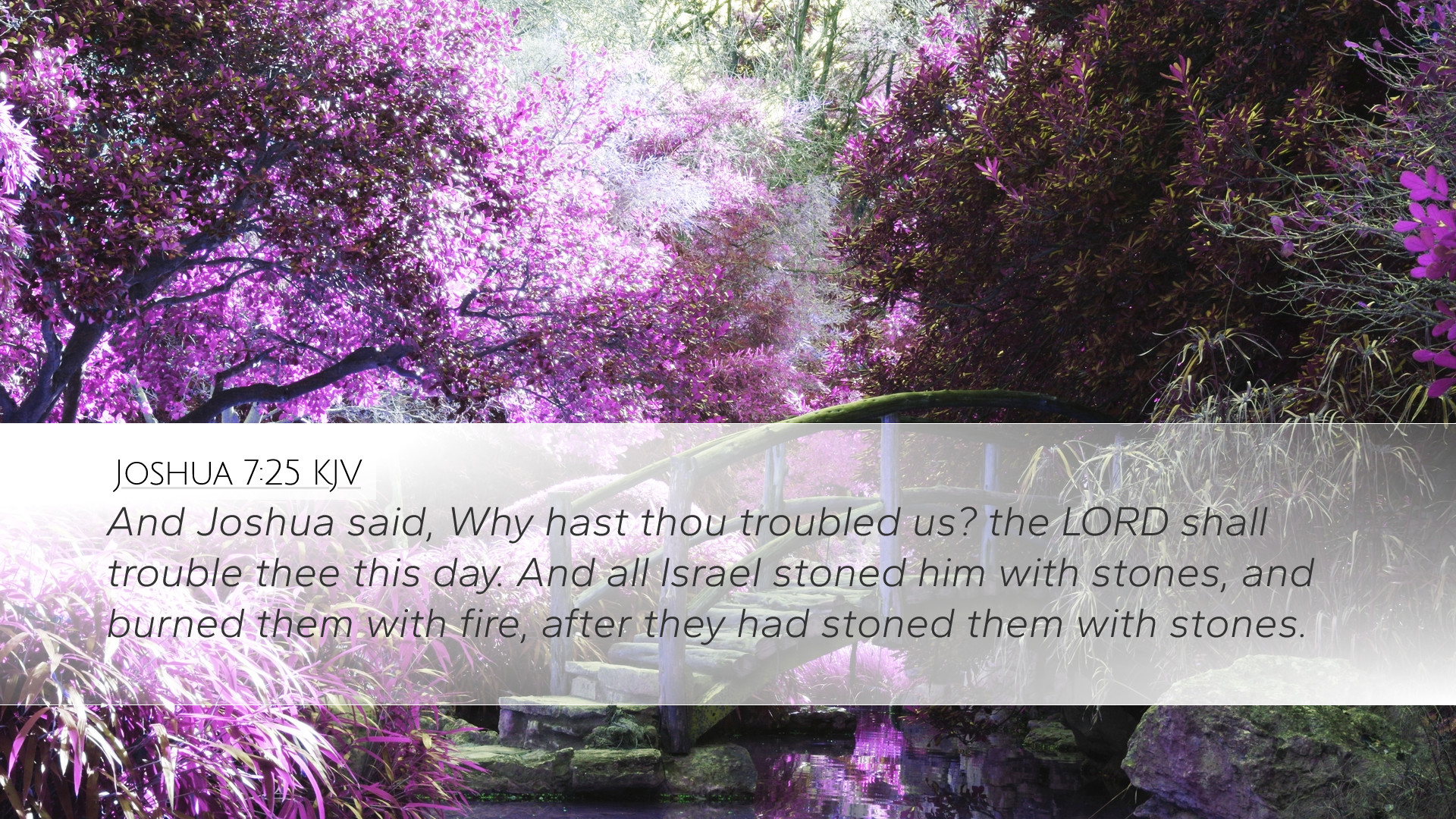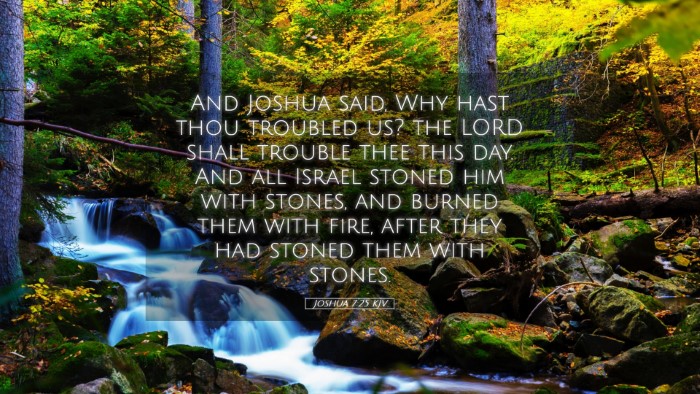Commentary on Joshua 7:25
Joshua 7:25 states:
"And Joshua said, Why hast thou troubled us? the Lord shall trouble thee this day. And all Israel stoned him with stones, and burned them with fire, after they had stoned them with stones."
Contextual Background
This verse occurs within the narrative of Israel's campaign to conquer Canaan, a land promised to them by God. In this chapter, the failure at Ai, linked to Achan’s sin of taking devoted items from Jericho, leads to Israel's defeat and ultimately to God’s judgment upon Achan. The chapter depicts the seriousness of disobedience to God’s commands, and this verse serves as a turning point, highlighting the consequences of individual actions on the communal body of Israel.
Theological Insights
- Accountability to God: The verse underscores the principle that individual sin can profoundly affect the community. Achan's act of disobedience brought defeat upon Israel; thus, his punishment serves as a stark reminder of personal responsibility.
- God’s Justice: Joshua's statement reflects divine justice. The phrase "the Lord shall trouble thee this day" indicates that Achan's actions invited divine retribution, emphasizing God’s holiness and the seriousness with which He treats sin.
- Sacred Community: The communal aspect of Israel is significant. Achan’s sin did not only bring trouble to him but also to the entire nation, illustrating how the health of the community is intertwined with the moral integrity of its members.
Commentary Insights
Matthew Henry
Matthew Henry emphasizes the gravity of Achan's sin, referring to it as "troubling" the people of Israel. He poignantly remarks that sin brings trouble not just to the sinner but to the surrounding community as well. In his exposition, he notes that the severity of Achan's punishment—being stoned and then burned—was necessary to cleanse the camp of Israel and to restore favor with God.
Albert Barnes
Albert Barnes reflects on the collective nature of sin and punishment. He indicates that Joshua’s question, “Why hast thou troubled us?” serves both as a reprimand and an explanation for the calamity that befell Israel. Barnes elaborates on the importance of holiness in the camp of Israel and suggests that Achan’s act of greed was an affront to the Lord's holiness, necessitating a decisive and severe response to restore divine order.
Adam Clarke
Adam Clarke provides an in-depth analysis of the cultural and historical relevance of stoning as a form of punishment. He delineates how this act was sanctioned by law and was seen as critical for maintaining communal purity. Clarke expresses that such drastic measures reveal the seriousness with which God views sin, particularly among His covenant people. He notes the importance of public execution in affirming the call for holiness in the camp and deterring others from sin.
Practical Applications
- Holiness and Community: Church leaders and believers should reflect on the implications of individual actions for church health. Personal decisions should be made with consideration of their impact on the wider community.
- Consequences of Sin: The narrative serves as a solemn reminder of the consequences that arise from disobedience to God’s commands. It encourages believers to be vigilant and accountable in their walk with the Lord.
- Restoration and Repentance: The stoning of Achan also symbolizes the need for truth and transparency in the body of Christ. Recognition and confession of sin are essential for restoration and communal health.
Conclusion
Joshua 7:25 encapsulates critical theological and communal themes worthy of deep reflection and serious consideration by pastors, students, theologians, and Bible scholars. It is a profound illustration of God’s justice, the gravity of sin, and the importance of maintaining holiness within the community of faith. As believers navigate their spiritual journeys, this verse serves as a guiding principle for communal integrity and individual accountability before God.


